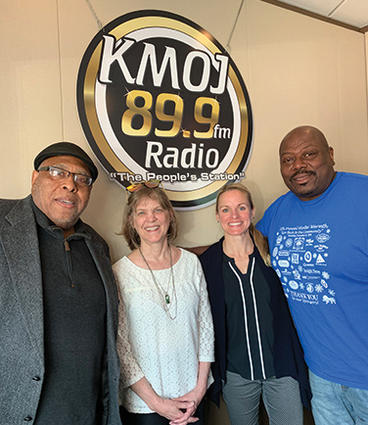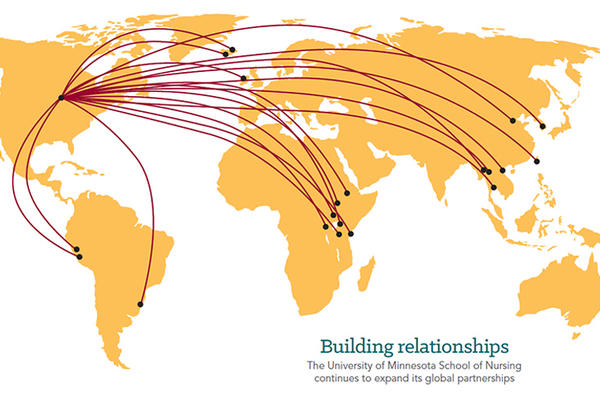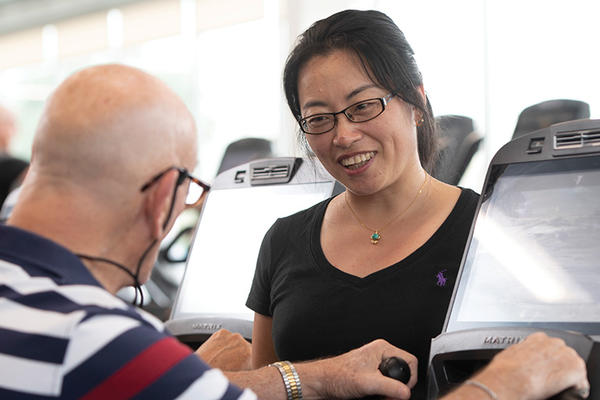Researchers help communities tell their story about opioids with data
News from the Center for Nursing Informatics
October 17, 2019

Researchers from the Center for Nursing Informatics collaborated with community organizations to help communities understand their strengths, challenges and needs relative to opioid misuse and overdose. Robin Austin and Karen Monsen, together with Clarence Jones from the Hue-MAN Partnership and Milton Eder from the Center for Translational Sciences Institute, partnered on a project to help communities decide what data they need to tell their story and to learn more about their needs in relationship to opioids.
State-of-the-science mobile health applications together with data visualization techniques are transforming the way communities gather and share information to influence policy and improve community resilience. Over the past year, together with nursing informatics Doctor of Nursing Practice students Carren Ondarra and Irene Oghumah, the project group has collaborated with numerous communities throughout Minnesota as well as the state epidemiologists to encourage data-driven science for communities and policy makers.
Abusing and overdosing on opioids — the opioid epidemic — can be perceived as a crime in minority communities, while assumed to be a health issue when affecting the majority. The project Shifting the Opioid Conversation from Stigma to Strengths: Opportunities for Using MyStrengths+MyHealth Data in Communities is a critical first step in building a research trajectory that will advance knowledge of a new way to understand the whole picture of health (not just disease) from the community’s perspective.
NIH Clinical and Translational Science Award at the University of Minnesota: UL1 TR002494



